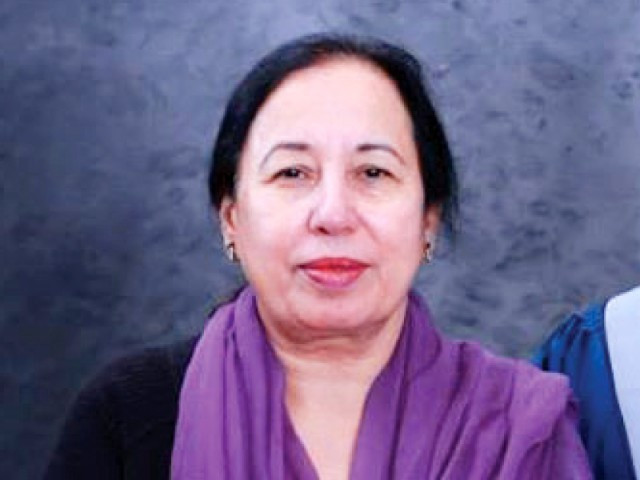'APS principal refused to leave school until the last child was rescued'
Sister of late Tahira Qazi says the principal helped many students out of the building

PHOTO: EXPRESS
Shahida Qazi - sister of APS principal Tahira Qazi - is still struggling with the reality. She lost her sister on the unfateful day of December 16, 2014 which claimed lives of 150 people, mostly school children.
Speaking to The Morning Call, Shahida said she is proud of her sister.
"She stood for education. She stood for the children. And she stood for her principles," she added.
Read: 132 children killed in Peshawar school attack
She went on to say that the attack on the school in Peshawar showed that everyone is vulnerable to terrorism and that terrorists have distorted Islam to justify violence against education itself.
A Pakistani-born, Shahida has lived in the United States for 37 years, five of those in the Lehigh Valley. Her murdered sister lived in Pakistan all her life.
On the morning of December 16, heavily armed militants entered the school and killed 150 people, 132 of them children.
"Unfortunately, all the boys 13 to 19 years old were assembled in one hall for a lecture," Shahida said. "That became a sitting-duck target for them. The students didn't have time to think what was happening," she added.
Read: Teachers get gun training after Peshawar massacre
Taliban militants went through the school shooting students and members of staff.
Security personnel told Shahida that, during the chaos, her sister helped many students out of the building.
"My sister was rescued twice," Shahida said adding that she was told [by soldiers and police] to get away, but she refused. She said, '"I will go with the last child.'"
Hours after the attack, Tahira's body was found in the bushes outside the school. She had a bullet wound to the front of her head, and an explosion may have tossed her into the bushes, her sister added.
Read: TTP claim responsibility for Peshawar school attack
Shahida and her other sister immediately booked a flight when they heard the bad news. They unfortunately missed the burial which was completed within 24 hours of the incident but family members visited the cemetery where Tahira was buried.
"Every day we went, there would be more flowers at her grave. We didn't even know where they were coming from," she said.
Her sister's example was part of the Qazi family's long commitment to education for boys and girls, she concluded.













COMMENTS
Comments are moderated and generally will be posted if they are on-topic and not abusive.
For more information, please see our Comments FAQ